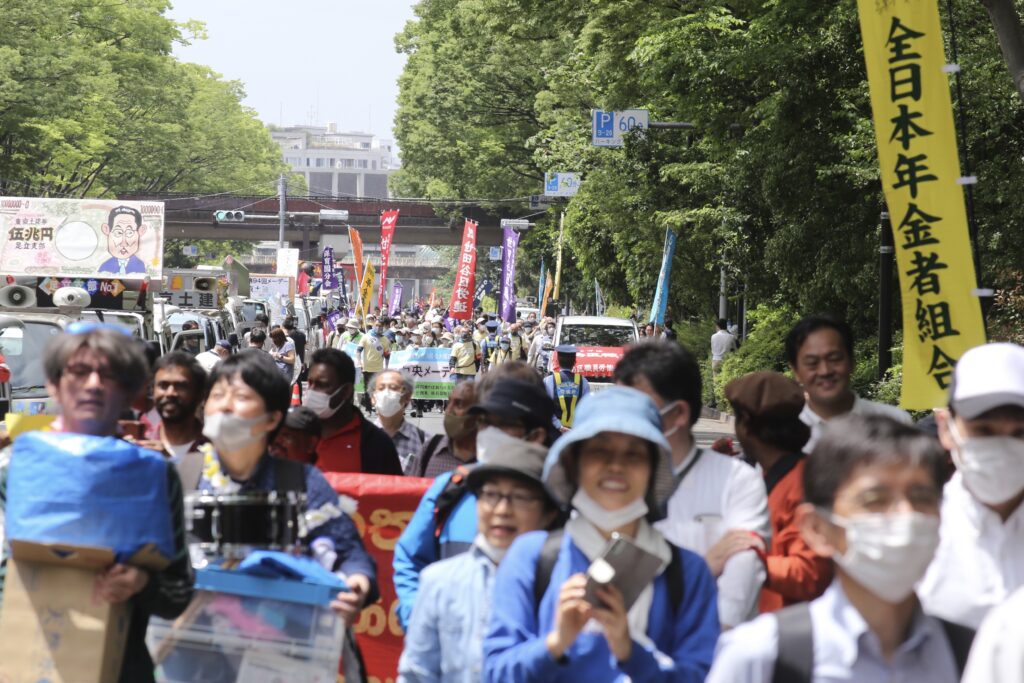
- ARAB NEWS
- 02 Jul 2025

TOKYO: For the first time in four years, the national trade union (Zenroren) called on workers to join them as 15,000 supporters gathered in Yoyogi Park before marching through the upmarket districts of Aoyama and Harajuku protesting inflation and increased military spending.
The meeting started with a statement read by Sophie Binet, French president of the General Confederation of Labor Unions. She focused on the problems of reform in France, which is raising the retirement age, and the common issues shared by workers everywhere.
In their statement, the union officials referred to the security plans adopted by the administration of Prime Minister KISHIDA Fumio, the expansion of military forces and increased military expenditures. They spoke against the export of military equipment that they say goes against the spirit of Japan’s pacifist constitution. And they demanded “early ratification of the Treaty on the Prohibition of Nuclear Weapons as workers and citizens of the only country that has experienced the atomic bombing”.
Complaints were made that workers have not received increases to match the cost of living in over 25 years, an example being in public hospitals where the lowest wage is still 1,080 yen per hour. “We must take this May Day as an opportunity to demand significant wage increases that surpass the rise in prices, improve our living standards, and strive for equal treatment and correction of disparities from a gender-equality perspective.”
Japan is among the weakest of developed countries in terms of gender disparity and lagging behind at No. 116 out of 156 countries according to the Gender Gap Index. Employment and wages for non-regular female workers were further affected by the COVID-19 pandemic.
Unionists also demanded an end to increased taxes and a tax system that favors large corporations. They asked for more support for small enterprises and farming as well as the need for a pension overhaul and an improved medical system.
The Fukushima nuclear disaster also remains an important focus for the trade unions, who continue to demand the end of all nuclear and coal energy. They pointed out that at a time when Japan will host the G7 summit, it has not yet made a commitment to end their dependence on fuel that is attributed to climate change.